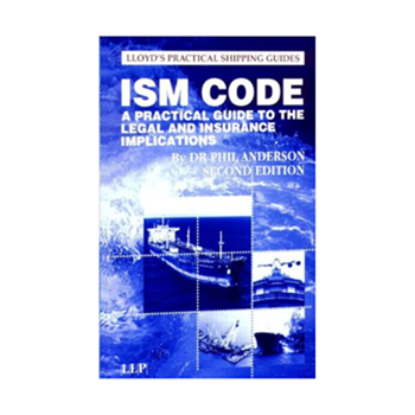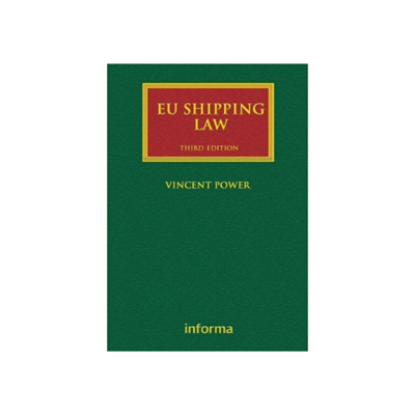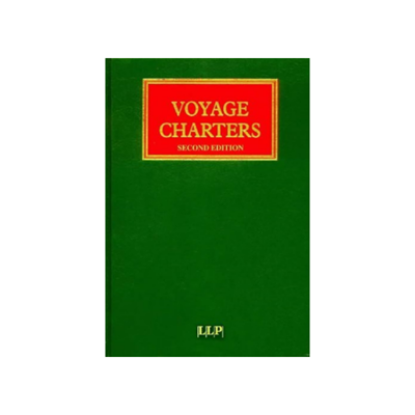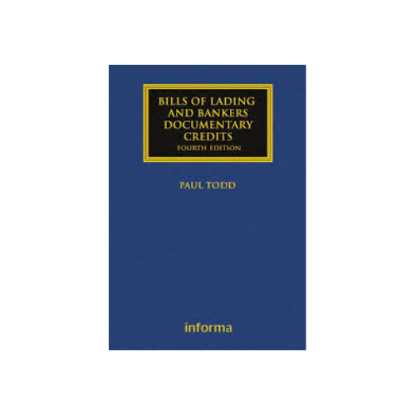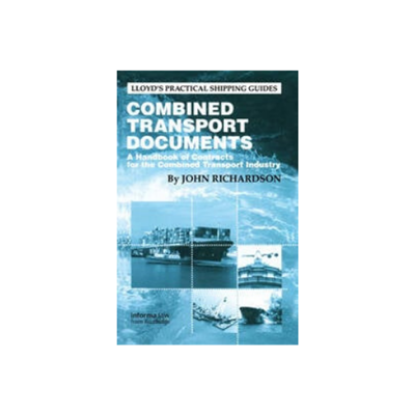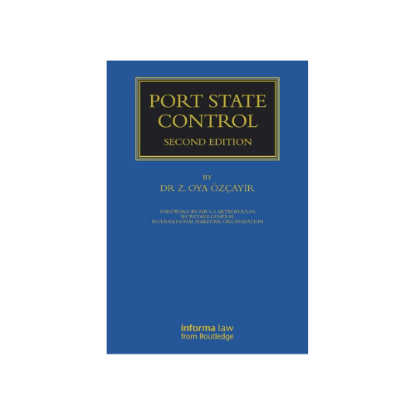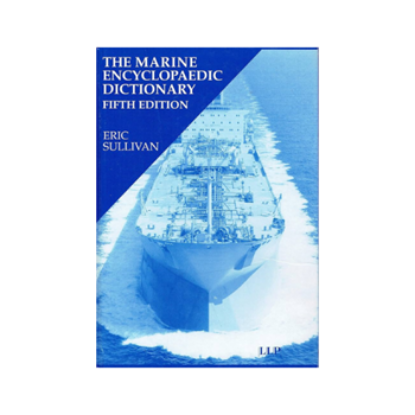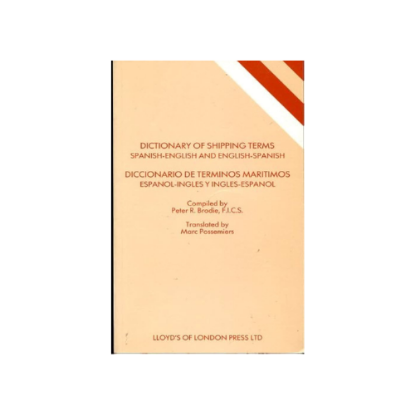Τα cookies μας βοηθούν να παρέχουμε τις υπηρεσίες μας. Με τη χρήση των υπηρεσιών μας, συμφωνείτε με τη χρήση των cookies.
Δεν υπάρχουν προϊόντα στο καλάθι σας.
LLP - Informa Publishing
ISM Code : A Practical Guide 2nd Edition
LLP-001
ISM Code: a guide to the legal and insurance implications remains one of a very small number of works on the ISM Code and the only one specifically addressing the legal and insurance implications. The ISM Code affects everyone involved with commercial shipping. It is the benchmark against which legal liability will be measured - in both civil and criminal actions. Whether you work on board ship or in an office ashore, you should always have this book close to hand for reference. Seven years on from the final deadline for phase one of implementation, this title has been fully updated to reflect developments and industry experience.
€130,00 με ΦΠΑ €100,00 με ΦΠΑ
EC Shipping Law 2nd Edition
LLP-003
A reference work for professionals who are under pressure to provide advice to clients on how EC law effects their business and how to avoid the pitfalls and take advantage of the extended market in any European transaction. Twenty-six chapters cover aspects of EC shipping law in detail and the author takes a commercial as well as a legal perspective throughout. Chapters included cover EC marine environmental law and marine insurance law - freedom of establishment and freedom to provide shipping services in the EC. This second edition has been completely revised to include recent developments, and features extensive appendices on council decisions, resolutions and recommendations.
€370,00 με ΦΠΑ €300,00 με ΦΠΑ
Voyage Charters 2nd Edition
LLP-004
This guide analyzes on a clause by clause basis the two major charterparty forms, the Gencon and Asbtankvoy, as well as reviewing the Hague and Hague-Visby rules. Throughout the authors provide a comparative analysis of English and American law and include details of all relevant case law and arbitrition awards.
€520,00 με ΦΠΑ €400,00 με ΦΠΑ
Bills of Exchange and Bankers' Documentary Credits 4th. Edition
LLP-005
Bills of exchange and bankers' documentary credits are the fundamental financial instruments and mechanism of settlement for international trading transactions. Bills of Exchange and Bankers' Documentary Credits, 4th Edition provides a highly readable, yet in-depth account of the law and practice relating to bills of exchange, cheques and bankers documentary credits. The authors explain how the Bills of Exchange and other instruments work in practice, drawing particular attention to the problems which are likely to arise and how best to resolve them. Furthermore, because the parties to financial transactions are often based in different countries, it deals with jurisdiction and choice of law to enable you to make the most informed and profitable choices.
€350,00 με ΦΠΑ €250,00 με ΦΠΑ
Carriage of Goods by Road CMR 4th. Edition
LLP-006
Now in its fourth edition, this hallmark text provides a comprehensive, article-by-article guide to the workings of the CMR Convention, as incorporated into English Law by the Carriage of Goods by Road Act 1965. This new edition is fully up to date with all major UK case law, plus major developments in the interpretation of the Convention in the case law of other Contracting States. Furthermore, the book includes expert guidance on the amendments introduced by the additional protocol concerning the electronic consignment note of 2008. The relationship between CMR and potentially conflicting legislation, in particular the Judgments Regulation of 2001 and the Judgments Regulation (recast) of 2012, are also usefully examined. Praised as well-written and extremely accessible, Messent and Glass offer a level of expert detail and referencing that cannot be found elsewhere. This work is an invaluable reference tool that can be used by the busy legal practitioner, and by other road haulage industry professionals, in any contracting state, to solve the issues that confront them in daily practice. It is also an indispensable guide for academics and students of the international carriage of goods by road.
€450,00 με ΦΠΑ €300,00 με ΦΠΑ
Combined Transport Documents
LLP-009
Combined Transport Documents provides a comprehensive guide to combined transport or multi-modal contracts. It examines the main contracts that deal with combined transport logically, from those concerned with the procuring of tonnage through to those that deal with general average and salvage. It also focuses on the complicated chains of indemnity particular to multimember consortium operations and explains in substantial detail a recommended draft bill of lading contract of carriage which the author himself developed. Combined Transport Documents provides a comprehensive guide to combined transport or multi-modal contracts. It examines the main contracts that deal with combined transport logically, from those concerned with the procuring of tonnage through to those that deal with general average and salvage. It also focuses on the complicated chains of indemnity particular to multi-member consortium operations and explains in substantial detail a recommended draft bill of lading contract of carriage which the author himself developed.
€150,00 με ΦΠΑ €100,00 με ΦΠΑ
Port State Control 2nd. Edition
LLP-010
Port State Control, Second Edition is a comprehensive publication dealing with the full implications and regulations of port State control. It provides a detailed analysis of the legal framework relating to port State control, including the most recent developments in this area. It covers not only the regional agreements on port State control and the EU legislation on this subject but also the background of the port State control process, its implications in practice and its effect on the ISM Code and the classification societies.
€360,00 με ΦΠΑ €300,00 με ΦΠΑ
Dictionary of Shipping Terms Spanish-English
LLP-016
The aim in compiling this dictionary has been to provide a reference book for all those who use or operate cargo ships, both tramp and liner, or who are concerned with their use. The principal areas covered voyage and time charters; documentation, including bills of lading; ship types and their gear; ports, their equipment and facilities; cargoes and their packing; geographical and weather features; as well insurance and reinsurance; CMR expressions, international sale of goods.
€118,00 με ΦΠΑ €65,00 με ΦΠΑ


.png)
